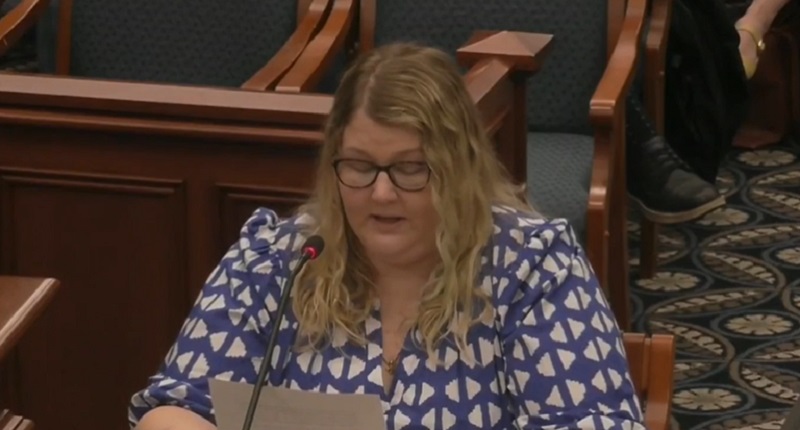Lansing, MI – Thousands of Michigan-based federal workers have found themselves at the mercy of the Department of Government Efficiency’s (DOGE) latest budget cuts, leaving many displaced and uncertain about their futures. During a special hearing held Thursday by the Senate Labor Committee, several terminated workers shared their harrowing experiences, shedding light on the devastating impact of the recent job reductions on both their lives and the services they provide.
One of the first to testify was Sean Egan, a representative from the Department of Labor and Economic Opportunity. Egan detailed how recent federal spending cuts had led to the elimination of essential positions, including federal mediators, who are instrumental in negotiating union contracts. Egan expressed concern that the loss of these professionals could potentially lead to widespread worker strikes, which could severely disrupt critical industries in the state.
Among those most affected were workers from Michigan’s federal agencies, including Nicole Rice, a former employee of the National Oceanic and Atmospheric Administration (NOAA) Great Lakes Environmental Research Lab in Ann Arbor. Rice, who was let go in February after receiving a recent promotion, described the sudden termination as not only financially devastating but also personally destabilizing. She recounted how her access to healthcare was abruptly cut off, leaving her without any guidance on securing interim coverage or how to apply for unemployment benefits.
“After being fired, my access to healthcare quickly vanished with no information provided on how to secure interim coverage,” Rice testified. “My income, my healthcare, and my dignity were stripped away without warning and without cause. These federal jobs don’t just represent paychecks; they represent public value. They safeguard our environment, ensure accurate weather forecasting, protect our food supply, and support our emergency response. When these employees are silenced or fired, when their missions are derailed, Michigan suffers.”
Rice’s testimony underscores a growing concern among federal workers: the disconnect between the vital services they provide and the bureaucratic decisions that affect their jobs. As the cuts continue, the state’s ability to maintain services like environmental research, public safety, and weather prediction may face significant setbacks.
Leslie Desmond, a former employee of the Department of Housing and Urban Development (HUD), also shared her personal ordeal with the committee. Like Rice, Desmond was terminated in February, leaving her grappling with financial instability. With no income, Desmond was forced to take up bartending to support her children while taking out loans from family members. She expressed the stress and anxiety caused by the uncertainty of her situation and voiced her concern about the far-reaching consequences of the cuts to HUD programs.
“These past few months have caused me unnecessary turmoil and stress,” Desmond testified. “I’ve lost paychecks. I’ve started bartending to feed my kids. I’ve taken loans from family members, and I worry about losing my house that I worked so hard for.”
Desmond further warned that the DOGE’s cuts could have long-lasting effects on housing assistance programs, which provide vital support for vulnerable families across Michigan. She explained that reduced staffing and resources in HUD could mean fewer affordable housing opportunities and a significant strain on existing programs that help those in need.
The testimony of these workers paints a bleak picture of how drastic budget cuts have not only hurt individual livelihoods but also jeopardized the services that many Michigan residents rely on. As the state grapples with these federal reductions, it remains to be seen how lawmakers will respond to ensure that essential services are preserved and that workers who are displaced by these cuts receive the support they need to rebuild their lives.
With many workers still in limbo, their futures uncertain, the urgency for action to address these issues has never been clearer. Michigan’s workforce and the critical services they provide are at risk, and the broader community is feeling the consequences of these government austerity measures.












